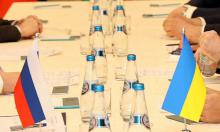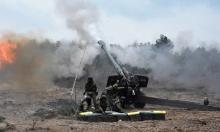Price for Philippines' concessions to terrorists may be high
The government of the Philippines has begun withdrawing its troops from Iraq in order to save the life of truck driver Angelo de la Cruz, taken hostage by terrorists. Earlier, the 51 Philippines soldiers were to leave Iraq on August 20. Thus, their withdrawal a month earlier does not have any great significance on Iraq's security. All the more so, as fifty Filipinos are nothing compared to almost 140,000 soldiers of international forces stationed in Iraq.
Yet there are other questions: the country has received sovereignty, but turned into a terrorist reservation. What can these or other countries, together or on their own, do in and with Iraq? The worst is that there are no clear answers to these questions.
For the hostage's family any price for his release will not be too much. As well as for millions of Filipinos - their opinion in this respect is unequivocal. But as a result, the country's president Gloria Arroyo has become the first leader to succumb to terrorists' blackmail in an Iraqi hostage taking. However, Spain was a no less victory for terrorists.
The terrorist attacks in Madrid in March 2004 happened ahead of elections in the country and evidently influenced their outcome. As a result the Spanish military contingent left Iraq. Honduras and the Dominican Republic followed suit. It is worth recalling that Russian President Vladimir Putin described as "a bad precedent" the fact that international terrorism credited itself with the change of power in Spain. Immediately afterwards, in April, inspired by this success terrorists began taking foreigners hostages in droves, hoping to influence their governments' policies.
They did not distinguish between countries that had sent their troops to Iraq and those that simply assisted its economic recovery. For example, Russian citizens were taken hostages as well. After a couple of such incidents with employees of the Russian company Interenergoservis, all Russian businessmen and specialists working to restore Iraq's industrial facilities left the country.
Yet departure of civilians afraid for their life is one thing, and withdrawal of troops is another. After all, at present Iraq needs domestic security most. If everyone leaves, who will ensure security? There is no answer.
Naturally, it is for every government to decide what to do in this situation. And every one will act as it wants. There are countries, including Russia, that refuse to make any concessions to terrorists. Last time Russia made concessions was June 1995 hostage taking in Budennovsk. As a result, terrorists became confident of their impunity and the number of victims only grew, including among civilians. In October 2002 the Russian authorities decided to assault the Theater Center in the Dubrovka street to free hostages. After the July 2003 terrorist attack in Tushino, Moscow, Russian President Vladimir Putin announced that "no state in the world is nose-led by terrorists. Neither is Russia. Because the first step on this path will mean the beginning of the country's collapse and then the number of victims will grew by tens, hundreds, thousands of times".
Yet this is the question of fighting terrorists within your own country. As to the situation in Iraq, Italy, South Korea and the USA have refused to withdraw their troops. As a result, a guard from Italy, Fabrizio Quatrocchi, was killed on April 14, 2004 (his three fellow countrymen were later released by the militants). Another hostage, Nicholas Berg, a US businessman, was killed on May 11, and South Korean interpreter Kim Sun-Il died on June 22. On July 13 terrorists killed a Bulgarian citizen taken hostage as their demand to the US troops, to release all Iraqi prisoners, had not been met. Japan has already refused to make concessions, but its citizens taken hostage in April were released. The lucky outcome is said to become possible by mediation of prominent Iraqi theologians.
The Philippines, as we can see, have decided otherwise, which suggests that the incident may be continued.
Subscribe to Pravda.Ru Telegram channel, Facebook, RSS!




